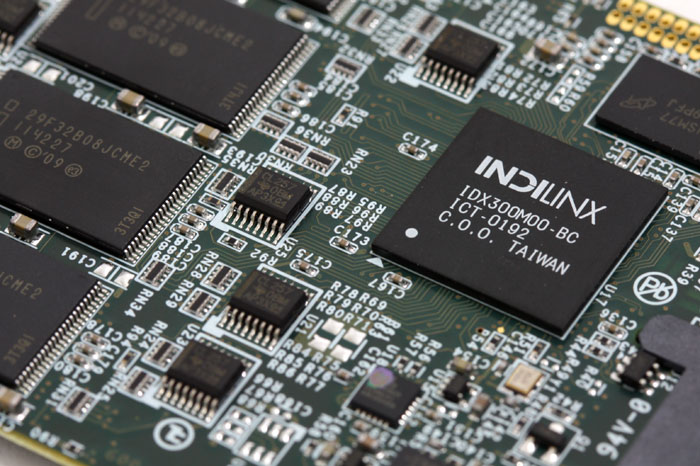Final words and conclusion
Final words and conclusion
The all new Vertex 4 series seems to be a strong basis and leaves me with thirst for some more. Realistically for those on Vertex 3 or for that matter any modern slash proper SATA3 based SSD -- you'll hardly miss out on anything. If anything the Vertex 4 uses the same performance bracket as Vertex 3, and can even be a little slower or faster depending on circumstances and application.
Some of the benchmark results seem to be a little off somehow, as some tests show just odd numbers. Nonetheless, looking at the overall picture the performance is there alright and the tests that do respond to the SSD properly, respond with excessive numbers.
Compared to Vertex 3 with SandForce we can only conclude that the SandForce 2200 series is out of trend (a little undeserved really), lots of people we think would surely opt the Vertex 4 series as the Indilinx controllers have proven to be extremely reliable when it comes to safely controlling your precious data. But I foresee that the Vertex 4 series will definitely see a few new firmware updates. The good thing is that you can update a downloadable application toolbox and reflash your firmware without loosing data. We tested that on both drives actually.
A heartening factor is active with the Vertex 4 series SSD, once we popped it in to our test setup it just felt good in every way and sense. SandForce 2000 controllers haul ass in uncompressed files, Indilinx Everest 2 hauls ass when it comes to both compressed and uncompressed files versus read/writes. Honestly overall if I'd have to pick an either an SandForce 2281 based SSD or a Indilinx Everest 2 based Vertex 4, it would probably be the latter. OCZ has proprietary technology in their hands that they control and regulate.
Overall performance to previously tested SSD units for the Vertex 4 SATA3 SSDs simply is good, admittedly here and there lacks and have shown some offsets in performance compared to that oh so tough competition. So hopefully the overall performance will go upwards with future firmware releases.
With the Vertex 4 series you do need to understand though that the smaller the SSD is on volume size, the slower it gets in write performance (less active channels). That makes a 128GB model write at only 200 MB/sec whereas the 256GB version writes at 380 MB/sec and the 512MB version at 475 MB/sec. Then again that behavior is the same for pretty much any other brand non Sandforce controller based SSD.
When looking at the benchmarks try and focus a bit at the IOPS performance throughout the SSD series, it is very fast and shows what the SSD is capable of. If an SSD in high stress can perform well with small 4K files, it's a real good indicator of the muscle behind that SSD. Obviously if you put a drive like this into your SATA3 compatible laptop or SATA3 compatible PC, you'll have no idea what is about to hit you. We very much enjoy the grand sustained performance of this SSD series, so you you copy a fast amount of compressed data, then the Vertex 4 will slaughter in performance.
Some overall recommendations then. Should you be in the market for a SATA3 SSD then we have a couple of hints though, we absolutely prefer the performance of the Intel Series 6 (H67/P67/Z68/X79/Z77) integrated SATA 6G controller over anything else available in the market. If you run an AMD chipset with the added Marvell 6G controller for example, you will see lower performance, make no mistake about that. The Asmedia controllers we spotted lately on motherboards is offering good performance, albeit still 25% slower then Intel. Also make sure you run your drive in AHCI mode, it does make a significant difference.
Prices HDD versus SSD -- well my advice is simple and I'll keep repeating this in each and every SSD conclusion; you probably should stop looking at the Solid State Disk technology as if it were a traditional HDD. We all will be old and grey before the two reach the same prices or top the multiple TB volume storage the HDD offers for less money. Comparing an SSD with an HDD is making a comparison in-between an integrated IGP or a dedicated graphics card, that last one will cost you a heck of a lot more yet you gain incredible overall performance. It is the very same with an SSD, use it as boot drive on Windows and applications and you instantly have removed a huge bottleneck, load and access times. It is a difference in-between night and day (in a proper system). For massive storage like movies, MP3 files and bulky data you do not access on a regular basis, sure that's where the HDD remains the winner.

The science behind this is is simply finding a good combination in-between the two and balance things out. That's where the magic happens. I kid you not, all my test systems and work systems run on SSDs, not once have I considered going back to HDDs. The benefits of a good SSD are simply grand. But that doesn't mean I do not understand the budget and cost dilemma that many of you are facing though. There are still many variables and unknowns regarding life-span.
We stated it with the Octane series reviews already, but the acquisition of Indlinx OCZ was an investment risk for OCZ, honestly we had our concerns. The Octane series already had proven our skepticism wrong, and with the new Vertex 4 series OCZ again confirms it was the right thing to do.
The good thing about the Vertex 4 series is that it remains fairly steady pricing wise, in fact at 1.35 USD per GB it's even slightly cheaper then some other high-end model SSDs. Hopefully you can find it for a price that is acceptable for you. We end this article with the words we always say, an SSD is the best upgrade a modern PC can use, your operating system flies, there are no waits which you normally have with an HDD, there's no noise and hardly any power consumption.
 If you have a proper PC with a SATA3 controller, the Vertex 4 series are definitely going to impress you in terms of performance, and we expect reliability as well. To proof that OCZ is backing their technology they will even give the product a very nice 5 year warranty, which we feel is the right move to make.
If you have a proper PC with a SATA3 controller, the Vertex 4 series are definitely going to impress you in terms of performance, and we expect reliability as well. To proof that OCZ is backing their technology they will even give the product a very nice 5 year warranty, which we feel is the right move to make.
For those still weary of SandForce 2200 series SSDs, all we can say... the Vertex 4 might be the alternative you've been looking for and as such comes recommended.
- Leave/read comments on this product
- Sign up to receive a notice when we publish a new article
- Or go back to Guru3D's front page
